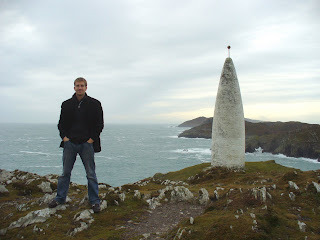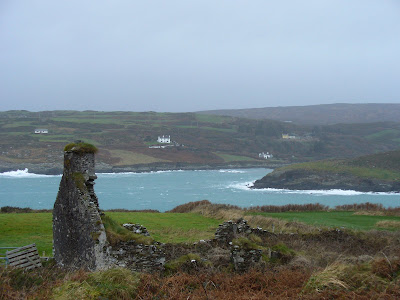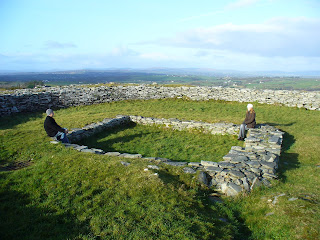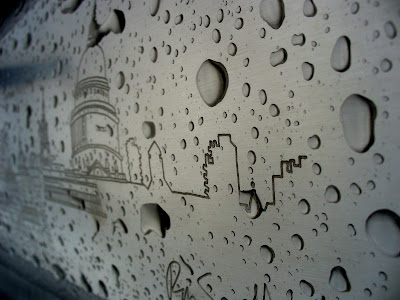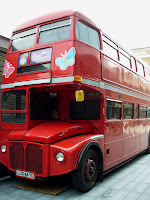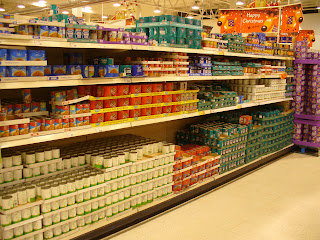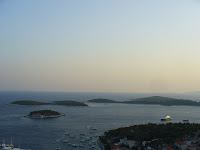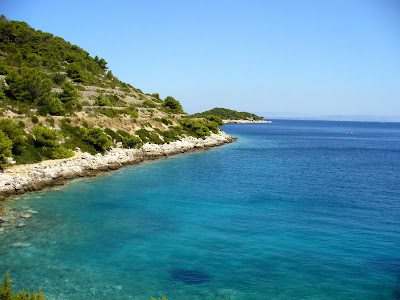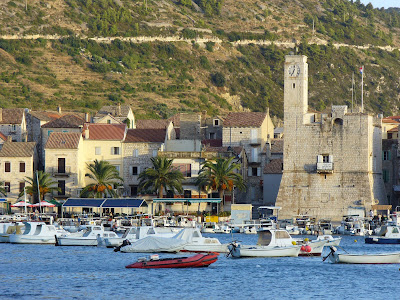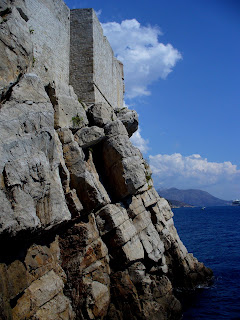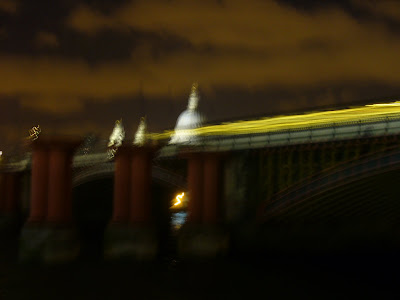 The remaining 3 months of my life whilst in London can best be summarized by one of the most famous quotes in English literature, " It was the best of times, it was the worst of times, it was the age of wisdom, it was the age of foolishness, it was the epoch of belief, it was the epoch of incredulity, it was the season of Light, it was the season of Darkness, it was the spring of hope, it was the winter of despair, we had everything before us, we had nothing before us. . ." ( CHARLES DICKENS, A Tale of Two Cities).
The remaining 3 months of my life whilst in London can best be summarized by one of the most famous quotes in English literature, " It was the best of times, it was the worst of times, it was the age of wisdom, it was the age of foolishness, it was the epoch of belief, it was the epoch of incredulity, it was the season of Light, it was the season of Darkness, it was the spring of hope, it was the winter of despair, we had everything before us, we had nothing before us. . ." ( CHARLES DICKENS, A Tale of Two Cities). The New Year ushered in huge challenges for me. I worked for some really shifty characters (who did not pay me until I took them to court), had a brush with the law resulting in my vehicle getting impounded and crushed. On New Year's Day, I had 4 cents in my bank account. With some luck, determination and hard work, I crawled my way back to the black (NOT a reference to Guinness consumption) and kept going. The only way my head remained above water is due to the amazing support and compassion from my 3 close friends whose shoulders I stood on time and again. A special thanks must go out to Nick, Emma and Una.
The New Year ushered in huge challenges for me. I worked for some really shifty characters (who did not pay me until I took them to court), had a brush with the law resulting in my vehicle getting impounded and crushed. On New Year's Day, I had 4 cents in my bank account. With some luck, determination and hard work, I crawled my way back to the black (NOT a reference to Guinness consumption) and kept going. The only way my head remained above water is due to the amazing support and compassion from my 3 close friends whose shoulders I stood on time and again. A special thanks must go out to Nick, Emma and Una. Yet the picture is far from bleak. The final 3 months soon ushered in more work than I could ever wish for and two fantastic last-minute travel excursions across England. Suddenly everything was indeed before me, yet the speed at which it approached and passed rivaled the view looking out from a high speed train. Just about every weekend was devoted to either work or travel. Without careful planning and some very early mornings, my last 80 days would have been very dull.
Yet the picture is far from bleak. The final 3 months soon ushered in more work than I could ever wish for and two fantastic last-minute travel excursions across England. Suddenly everything was indeed before me, yet the speed at which it approached and passed rivaled the view looking out from a high speed train. Just about every weekend was devoted to either work or travel. Without careful planning and some very early mornings, my last 80 days would have been very dull.The first few spare weekends and weeknights were devoted to helping restore my friends' flat in East London. The four of us were painters, plumbers, carpenters, professional cleaners and decorators. On one late night drive back home, we were stopped at a light in Nick's car when suddenly the air exploded with ringing. Big Ben was striking 11 right beneath us. This beautiful landmark that has been destroyed in at least 3 action /alien/natural disaster movies was literally shaking the car. And that's London for you. Just when you think you are numb to the culture, history and style, this megalopolis comes out of nowhere and delivers inspiring moments you simply can't ignore. In this case a left uppercut to the ear.
 First up was Cambridge. Home of the punts and canals that shuttled such scholars as Isaac Newton, Charles Darwin, Niels Bohr, Steven Hawking and John Cleese. The colleges (31 in all) are literally dripping with history and achievement (82 Nobel Prizes). You could spend a week drinking up the written history and alumna's accomplishments, but really all you need to do is take a stroll (stay off the lawn!). To simply be able to walk the same stone corridors as the inventor of Calculus and co-creator of Monty Python is indeed worth the hour long train ride from London.
First up was Cambridge. Home of the punts and canals that shuttled such scholars as Isaac Newton, Charles Darwin, Niels Bohr, Steven Hawking and John Cleese. The colleges (31 in all) are literally dripping with history and achievement (82 Nobel Prizes). You could spend a week drinking up the written history and alumna's accomplishments, but really all you need to do is take a stroll (stay off the lawn!). To simply be able to walk the same stone corridors as the inventor of Calculus and co-creator of Monty Python is indeed worth the hour long train ride from London. Cambridge has been producing excellence in academics along the river Cam since 1209. The Cambridge University Press is the world's oldest publisher and printer. It began in the shadow of a murder, conviction and hanging of two Oxford students. A portion of the student body protested and refused to carry on that year at Oxford. Students fled to Cambridge thus making it the world's second oldest English speaking University. The town surrounding the colleges is just as magical. Numerous old pubs dot the landscape and probably trump the libraries when it comes to total hours of patronage by the students. One pub, The Eagle has preserved some wonderful contemporary history. World War II fly boys of the RAF and USAF "signed" the ceiling of the establishment with huge black strokes of their zippo lighters. The carbon and soot endured years of neglect and have now been wonderfully restored.
Cambridge has been producing excellence in academics along the river Cam since 1209. The Cambridge University Press is the world's oldest publisher and printer. It began in the shadow of a murder, conviction and hanging of two Oxford students. A portion of the student body protested and refused to carry on that year at Oxford. Students fled to Cambridge thus making it the world's second oldest English speaking University. The town surrounding the colleges is just as magical. Numerous old pubs dot the landscape and probably trump the libraries when it comes to total hours of patronage by the students. One pub, The Eagle has preserved some wonderful contemporary history. World War II fly boys of the RAF and USAF "signed" the ceiling of the establishment with huge black strokes of their zippo lighters. The carbon and soot endured years of neglect and have now been wonderfully restored. Upon arrival to the UK, it was imperative for me to start thinking in and earning pounds. With an exit strategy and savings plan firmly in place, it was time to start thinking in dollars again. London is the most expensive city in the world to dine out in. Consequently, I found myself at the local grocery store quite often. The closest one (called Asda and owned by the Wallmart regime) claimed to be open 24 hours. I usually don't require access to baked beans at 4am, but it would be nice to know it was a realistic option. When time schedules are printed below the 24 hour logo, you know something is rotten in Denmark. Cheap eats can be found, but at your body's own risk. Fast food has successfully been exported from America and is now poisoning the youth here as well. If imitation is a sign of market dominance, then KFC gets the prize for most successful. A quick bus ride down a main shopping area will eventually morph into a Southeastern United States geography lesson; Tennessee Chicken, Dallas Chicken, Carolina Chicken and Kebabs(?), Alabama Fried Chicken, the Texas Embassy . . .the South rises again!
Upon arrival to the UK, it was imperative for me to start thinking in and earning pounds. With an exit strategy and savings plan firmly in place, it was time to start thinking in dollars again. London is the most expensive city in the world to dine out in. Consequently, I found myself at the local grocery store quite often. The closest one (called Asda and owned by the Wallmart regime) claimed to be open 24 hours. I usually don't require access to baked beans at 4am, but it would be nice to know it was a realistic option. When time schedules are printed below the 24 hour logo, you know something is rotten in Denmark. Cheap eats can be found, but at your body's own risk. Fast food has successfully been exported from America and is now poisoning the youth here as well. If imitation is a sign of market dominance, then KFC gets the prize for most successful. A quick bus ride down a main shopping area will eventually morph into a Southeastern United States geography lesson; Tennessee Chicken, Dallas Chicken, Carolina Chicken and Kebabs(?), Alabama Fried Chicken, the Texas Embassy . . .the South rises again! It would have been criminal to leave England without first visiting Scotland. With no time for a proper tour of the highlands, I had to settle for Edinburgh. This magnificent city is one of the most impressive I have visited anywhere. It is only fitting that the city's origin revolves around the castle. It began in the 7th Century as "Castle Rock" and was soon expanded on the volcanic crag and occupied by British and then Scottish forces over the centuries. As with most castles in Europe, this fortress is a collage of eras that grew through the centuries as warfare methods challenged engineering capabilities. The remaining architecture of the city is predominantly and rather dramatically occupied by Georgian and Medieval styles. This city is instantly more interesting to the eye than London because of its accessible size and geography. It is perched atop two ridges that are bisected by a river canyon. The history of the city is fascinating. The Victorians basically re-built directly on top of the old streets that slanted down to the medieval cesspool of a lake (Nor Loch). You can tour the old cobblestone streets (closes) where the bubonic plague stalked its victims, look up and see the bottom of a massive building that covered the slums like an umbrella.
It would have been criminal to leave England without first visiting Scotland. With no time for a proper tour of the highlands, I had to settle for Edinburgh. This magnificent city is one of the most impressive I have visited anywhere. It is only fitting that the city's origin revolves around the castle. It began in the 7th Century as "Castle Rock" and was soon expanded on the volcanic crag and occupied by British and then Scottish forces over the centuries. As with most castles in Europe, this fortress is a collage of eras that grew through the centuries as warfare methods challenged engineering capabilities. The remaining architecture of the city is predominantly and rather dramatically occupied by Georgian and Medieval styles. This city is instantly more interesting to the eye than London because of its accessible size and geography. It is perched atop two ridges that are bisected by a river canyon. The history of the city is fascinating. The Victorians basically re-built directly on top of the old streets that slanted down to the medieval cesspool of a lake (Nor Loch). You can tour the old cobblestone streets (closes) where the bubonic plague stalked its victims, look up and see the bottom of a massive building that covered the slums like an umbrella.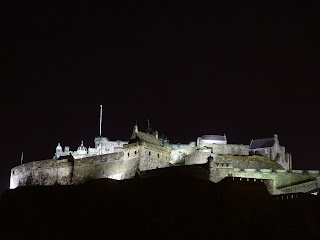 I managed to find a way to combine my usual transportation blunders with navigating in Edinburgh. This occurred when it was time to explore a much tauted and written about gastro pub in the travel book. I walked a good clip to fetch a taxi and have it take me across town. A quick mis-read of the map and subsequently skewed extrapolation of the address sent me on a wild goose chase. I checked the date of publication of the book, asked the locals. . .nothing. Only when I studied the map again did I discover that the location of the pub was 200 feet from where I had originally hailed the cab.
I managed to find a way to combine my usual transportation blunders with navigating in Edinburgh. This occurred when it was time to explore a much tauted and written about gastro pub in the travel book. I walked a good clip to fetch a taxi and have it take me across town. A quick mis-read of the map and subsequently skewed extrapolation of the address sent me on a wild goose chase. I checked the date of publication of the book, asked the locals. . .nothing. Only when I studied the map again did I discover that the location of the pub was 200 feet from where I had originally hailed the cab.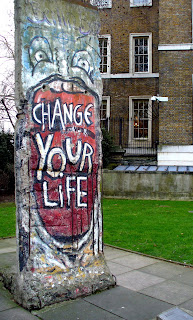 Arriving on this island in my critically late 20's seemed exciting. You can still travel, take risks and recover in your 20's. Yet my pending departure from England in my infantile 30's gives one pause. I had it worked out in my head that this place and this transition in my life would be a harbinger for instant change. Although some changes have been swift, others have been much more subtle. Par example, I can't remember when my mind suddenly shifted from thoughts like, "Wow, that's a great deal on a case of beer" to "That seems like a really good price for such well designed electric nose hair trimmers." Hangovers get progressively worse, even with my re-investment of beer money into closely cropped nose hair. My metabolism seems content on teasing my mid-section, cruelly adding layers of love handles like tree rings. I have even caught myself lecturing kids who litter and are disrespectful (but do try to lighten things up with, "I don't want to sound like an old man. . .but"). I just feel fortunate to have such an opportunity to have my eyes opened by somewhere new, and yell at some kids in the process.
Arriving on this island in my critically late 20's seemed exciting. You can still travel, take risks and recover in your 20's. Yet my pending departure from England in my infantile 30's gives one pause. I had it worked out in my head that this place and this transition in my life would be a harbinger for instant change. Although some changes have been swift, others have been much more subtle. Par example, I can't remember when my mind suddenly shifted from thoughts like, "Wow, that's a great deal on a case of beer" to "That seems like a really good price for such well designed electric nose hair trimmers." Hangovers get progressively worse, even with my re-investment of beer money into closely cropped nose hair. My metabolism seems content on teasing my mid-section, cruelly adding layers of love handles like tree rings. I have even caught myself lecturing kids who litter and are disrespectful (but do try to lighten things up with, "I don't want to sound like an old man. . .but"). I just feel fortunate to have such an opportunity to have my eyes opened by somewhere new, and yell at some kids in the process. London will never be just one thing to me. It would be impossible to encapsulate it in one answer (hence one year of this damn Blog torture for all 3 of my readers!). The most straightforward and honest answer I can give to how London was this past year is, "I have learned more about myself living within London's city walls in the past year than 10 years of living elsewhere." The time spent was invaluable. The struggles major, the delights numerous. This particular time in my life can't be defined by one statement, its just not fair to the man or the place. Perhaps other major cities are different, but for this one you really have to adapt. I have adhered to some very wise advice from one Londoner who said, "Those that bend will never break". This pliancy is necessary for London and in life, be it financially, emotionally, timing, patience, humor. . . . . . There is so much about London that I will miss. I will miss the cosmopolitan culture. I will not miss the airplanes flying directly overhead shuttling in and out hundreds of thousands daily to this giant cocktail of faces. I will miss watching all the people going in all sorts of directions. On the Tube tunnels, bobbing and weaving around disoriented tourists, stepping over a buskers' coin-lined guitar case. I will not miss being watched (filmed) incessantly o
London will never be just one thing to me. It would be impossible to encapsulate it in one answer (hence one year of this damn Blog torture for all 3 of my readers!). The most straightforward and honest answer I can give to how London was this past year is, "I have learned more about myself living within London's city walls in the past year than 10 years of living elsewhere." The time spent was invaluable. The struggles major, the delights numerous. This particular time in my life can't be defined by one statement, its just not fair to the man or the place. Perhaps other major cities are different, but for this one you really have to adapt. I have adhered to some very wise advice from one Londoner who said, "Those that bend will never break". This pliancy is necessary for London and in life, be it financially, emotionally, timing, patience, humor. . . . . . There is so much about London that I will miss. I will miss the cosmopolitan culture. I will not miss the airplanes flying directly overhead shuttling in and out hundreds of thousands daily to this giant cocktail of faces. I will miss watching all the people going in all sorts of directions. On the Tube tunnels, bobbing and weaving around disoriented tourists, stepping over a buskers' coin-lined guitar case. I will not miss being watched (filmed) incessantly o ver 300 times per day. I will miss the pub life, watching a rugby match with my friends. I will not miss paying $8.50 for a beer. I will miss the rare sunny days in the park with all the city alive and joyous. I will not miss the months of cold rain that bracket those miraculously sunny days. I will miss living in a country where the conservative politicians talk about "Carbon Footprints" and bike to work. I will not miss looking at Gordon Brown's pale expressionless face. I will miss watching the English eat a meal with cutlery--it really is an art. I will not miss the food that usually requires silverware and the price you had to pay for it (some exceptions apply). I will miss the ease of travel, popping up from the underground and walking into your favorite museum (for free) to grab a cup of coffee and some dessert. I will not miss cramming into a packed Train. I will not miss getting absolutely drenched in a violent rainstorm while hauling heavy tools on my back. I will miss those red phone booths, even though nobody uses them. But most of all, I will miss the incredible friendships I forged in an extraordinary time in my life.
ver 300 times per day. I will miss the pub life, watching a rugby match with my friends. I will not miss paying $8.50 for a beer. I will miss the rare sunny days in the park with all the city alive and joyous. I will not miss the months of cold rain that bracket those miraculously sunny days. I will miss living in a country where the conservative politicians talk about "Carbon Footprints" and bike to work. I will not miss looking at Gordon Brown's pale expressionless face. I will miss watching the English eat a meal with cutlery--it really is an art. I will not miss the food that usually requires silverware and the price you had to pay for it (some exceptions apply). I will miss the ease of travel, popping up from the underground and walking into your favorite museum (for free) to grab a cup of coffee and some dessert. I will not miss cramming into a packed Train. I will not miss getting absolutely drenched in a violent rainstorm while hauling heavy tools on my back. I will miss those red phone booths, even though nobody uses them. But most of all, I will miss the incredible friendships I forged in an extraordinary time in my life."It is a far, far better thing that I do, than I have ever done; it is a far, far better rest that I go to than I have ever known." (CHARLES DICKENS A Tale of Two Cities).

